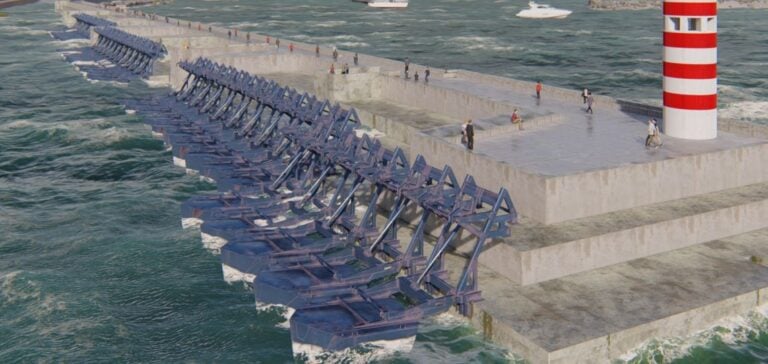Portugal is progressing with the development of Eco Wave Power’s 20-megawatt (MW) hydropower project in Porto, as technical studies led by MOQ Engineering near completion. The project aims to deliver operational results by 2026, under the concession agreement with Administração dos Portos do Douro, Leixões e Viana do Castelo, S.A. (APDL).
A key technical partnership
MOQ Engineering, a well-established civil engineering firm in Portugal, is finalizing the designs for the project’s floaters. These critical components are the backbone of Eco Wave Power’s energy conversion system. The ongoing load calculations and technical designs will ensure operational efficiency and installation safety. Validation of these works is expected by February 2025.
This milestone is vital for transitioning into the production phase of the floaters and related structures. Eco Wave Power will then submit all technical specifications to APDL for approval, paving the way for the project’s implementation.
A strategic focus for the company
The pilot project in Porto serves as a technological showcase for Eco Wave Power in the hydropower energy sector. The company intends to use this success to strengthen its market presence globally. Similar projects are underway in Taiwan and the Port of Los Angeles, with further announcements expected in other regions.
Despite the ambitious objectives, this project is strategically significant for proving the commercial viability of Eco Wave Power’s technology. Economic impacts, such as local job creation and collaboration with Portuguese industrial players, also enhance the company’s positioning in an increasingly competitive market.
Prospects for hydropower energy
This type of project aligns with current trends of integrating innovative technologies into port infrastructure. By diversifying energy approaches, ports aim to optimize operational efficiency while reducing long-term costs. However, the adoption of technologies like Eco Wave Power’s will depend on their ability to deliver reliable performance and competitiveness compared to existing hydropower solutions.
The progress made by Eco Wave Power in Porto highlights its ambition to carve out a niche in this demanding market, but success will ultimately depend on demonstrating a clear return on investment for operators and stakeholders.






















